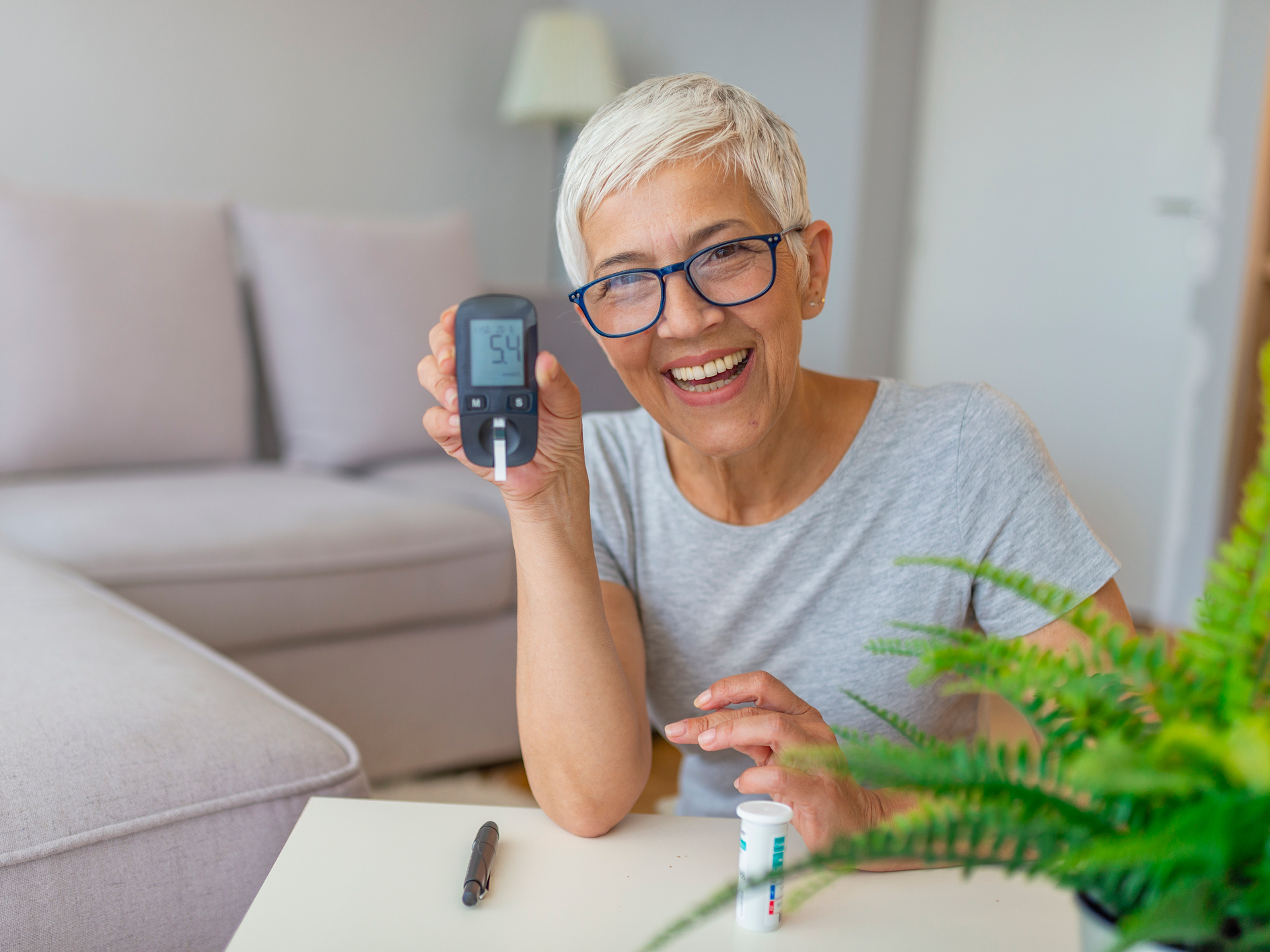Get Easy Health Digest™ in your inbox and don’t miss a thing when you subscribe today. Plus, get the free bonus report, Mother Nature’s Tips, Tricks and Remedies for Cholesterol, Blood Pressure & Blood Sugar as my way of saying welcome to the community!
The diet that could eventually replace insulin

Synthetic insulin is one of the most impactful and amazing discoveries of the 20th century. Since it was discovered in 1921, it’s saved countless lives.
But there’s no denying that insulin comes with some downsides…
Like weight gain, a loss of control over blood sugar and an increased risk of heart disease.
While these issues are better than the alternative (dying young from diabetes), in an ideal world you could get your blood sugar back on track without putting yourself at risk in other ways.
Now, you may be thinking… what about diet? Can’t that get diabetes under control without all those side effects?
It’s hard to find a diet that can consistently keep your blood sugar balanced without the help of insulin. It’s possible, but it’s not easy. There have been promising studies showing calorie-restricted diets can restore balanced blood sugar. But those diets are nearly impossible to stick to.
What other options do you have?
How about a diet that taps into the power of your biological clock to help you lose weight, balance blood sugar and maybe even get off your diabetes medication…
Eating with your biological clock could be the best diabetes diet
Traditionally, people with type 2 diabetes are told to eat as many as six small meals a day rather than three larger ones. Why?
Eating frequent, small meals is supposed to prevent blood sugar from getting too high after meals and keep you fuller throughout the day. But it turns out, this may not be the best approach…
When you eat six meals, some of those meals are bound to be in the evening. Our biological clocks, however, prefer that we eat during the day. In fact, a new study from Tel Aviv University shows that if you eat a diet that follows a natural biological rhythm, you might not need diabetes medications anymore.
The study included 29 people with type 2 diabetes who were split into two groups. One group ate six small meals per day, and the other group ate three meals per day. The three-meal group followed certain meal guidelines — they ate a breakfast that included bread, fruit, and sweets, a satisfying lunch, and a small dinner that didn’t include starches, sweets, or fruit. They followed this diet for twelve weeks, and guess what happened?
People eating six meals didn’t experience any benefits. They didn’t lose weight. Their blood sugar didn’t improve. And some even required more diabetes medication and insulin. The people eating three meals had a completely different experience…
Their blood sugar dramatically improved. They lost weight. They were able to reduce the amount of diabetes medication and insulin they used. Some were even able to stop taking insulin. It was amazing!
Researchers believe the three meal diet was so successful because it worked with participants’ biological clocks better. They ate starches, sweets and the biggest meals in the early part of the day when their biological clock was gearing up. And as their biological clock was winding down for the evening, they gave it less work by eating a small meal without a lot of starch or sugar.
How to keep your biological clock in mind when you eat
Should you try this biological clock-based eating pattern if you have type 2 diabetes? It seems safe to try. There are no guarantees it will help you get off your diabetes medication or insulin. But I think it’s one of the easier diabetes diets around…
You don’t have to give up carbs completely. You don’t have to restrict yourself to 800 calories per day. You can even eat sweets occasionally… as long as you do it in the morning. Although, I’d still recommend eating more fruits and whole grains for breakfast than sweets. If you are interested in trying this approach to eating, here are the four simple steps to follow:
- Eat a carbohydrate-rich breakfast
- Eat a substantial, satisfying lunch
- Eat a small dinner without starches, sweets or fruits
- Don’t eat anything else until breakfast time
Now, if you’re tempted to be an extra good girl or boy scout and go low-carb in the morning too, don’t. Researchers think part of the reason this diet works is that eating carbs in the morning switches on a gene that regulates blood sugar better throughout the day. So, you have permission to enjoy a carb-filled breakfast guilt-free.
Editor’s note: Are you feeling unusually tired? You may think this is normal aging, but the problem could be your master hormone. When it’s not working, your risk of age-related diseases skyrockets. To reset what many call “the trigger for all disease” and live better, longer, click here to discover The Insulin Factor: How to Repair Your Body’s Master Controller and Conquer Chronic Disease!
Sources:
- Eating in sync with biological clock could replace problematic diabetes treatment — American Friends of Tel Aviv University
- Reduction in Glycated Hemoglobin and Daily Insulin Dose Alongside Circadian Clock Upregulation in Patients With Type 2 Diabetes Consuming a Three-Meal Diet: A Randomized Clinical Trial — Diabetes Care
- Who discovered insulin? — Medical News Today
- New diet that matches biological clock may be better for diabetes — Medical News Today
- Eat Small, Frequent Meals — Everyday Health













